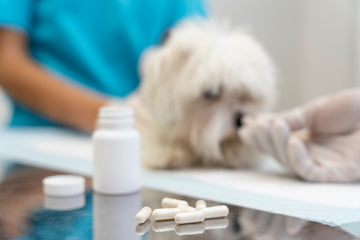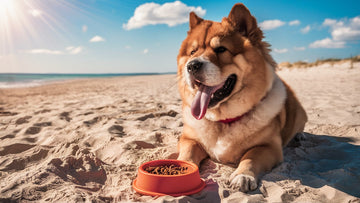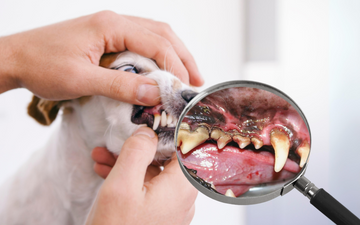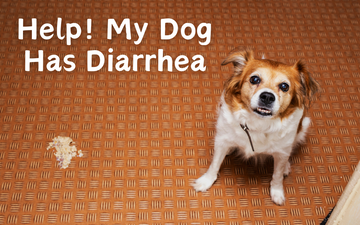Calcium is important for Pets but it needs a measure and some partners
by Luvin digital on Sep 15, 2023

Let’s understand how Calcium works in the body.
As we all know, Calcium is important for many bodily functions of Dogs and Cats. Primarily for forming biomaterials, as calcium phosphate, for bones and teeth, existing primarily as bound calcium. But do you know around 1% of total body Calcium is also available, in its free ionic form, throughout the body for various other Physiological functions. This calcium helps in muscle contractions, in cell division and as Neurotransmitter in Cell communication. Because if this vital role, the total amount of Calcium in the body is strictly regulated.
Under physiological functions, Calcium is absorbed from the intestine and excreted from the kidneys. Out of the total free ionic Calcium, the extracellular portion, is transported throughout the body via blood vessels.
The Calcium level in blood is controlled by the Parathyroid Hormone (which is formed in the PTH glands) and Vitamin D (which is synthesized in the skin and liver and converted into its active form- Calcitriol, in the kidney. There is another regulator called Calcitonin, which forms in the Thyroid gland.
Vitamin D is essential for Calcium and Phosphorus absorption from the food in the Gastrointestinal tract and maintaining their blood level. It activates mineralization and bone remodelling.
In the Kidney, Vitamin D ensures resorption of Calcium and Phosphorus, though for the later you need PTH to be present. PTH activates bone de-mineralization when Calcium levels in blood drop. This leads to release of Calcium and Phosphate from bones. Bone demineralisation, simply put, can result in Calcium-Phosphate imbalance. Excessively demineralised bones are at the risk of fracture and osteoporosis.
Now when the body registers, using calcium receptors located in renal tubular cells and PTH glands, that there is increased serum calcium in the body, it stimulates the release of Calcitonin. This now reduces calcium absorption from food and also reduces the bone demineralisation process and triggers the kidneys to start excreting calcium. Excess Urinary Calcium can lead to calcium deposits in Kidney and increase risk or progression of Chronic Kidney Disease.
On the contrary, if the serum calcium level was to be found low, bone demineralisation would increase thereby weakening them. Also, enough calcium would not reach nerves, muscles and wounds. This can cause problems with heart and blood clotting.
So, while the body is trying to regulate Calcium and Phosphorus levels, it is important that the same should be supplied all through the Pet’s lifecycle, alongwith required levels of Vitamin D, through the food intake. And that too, there is balance of Calcium:Phosphorus required which is very difficult to manage in the kitchen with home-cooked meals. One reason, why we recommend a properly formulated Dog Food and Cat Food “COMPLETE & BALANCED” meal is quintessential for providing a beautiful and quality life to your furry.





